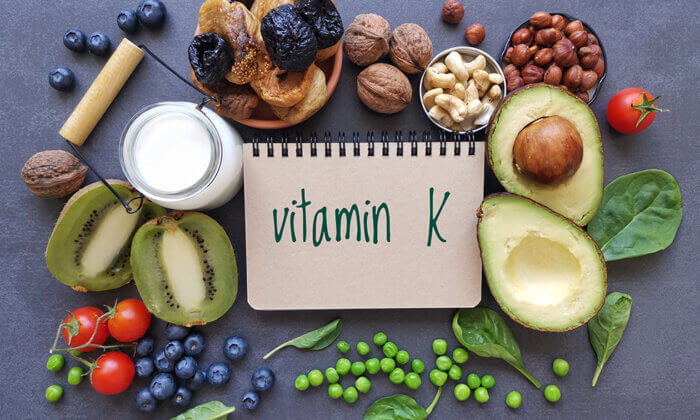The Silent Threat: Unveiling the Link Between Fats and Liver Health
| | Reading Time: 4 minutes

In today’s fast-paced world, it’s easy to overlook the impact of our dietary choices on our overall health. But this silent threat becomes impossible to ignore when it comes to fats and liver health. Recent studies have unveiled a compelling link between the two, highlighting the crucial role that fats play in maintaining optimal liver function.
But what exactly is this link, and why is it important to pay attention to it? Join us as we delve into the world of fats and liver health, uncovering the hidden dangers and revealing the potential solutions that can help us protect our liver. From exploring the different types of fats and their effects on the liver to understanding the mechanisms behind this connection, this article offers valuable insights into this often-overlooked aspect of our well-being.
Knowledge is power, and by arming ourselves with the right information, we can make proactive choices that support a healthy liver and, ultimately, a healthier life. So, let’s embark on this journey together and shed light on the silent threat that is the link between fats and liver health.
Understanding the liver and its functions
The liver is one of the most vital organs in our body, responsible for a wide range of essential functions for our well-being. It acts as a powerhouse, producing bile to aid digestion, metabolizing nutrients, detoxifying harmful substances, and storing essential vitamins and minerals, including vitamins A, B12, and E, as well as copper and iron. The liver also plays a key role in regulating cholesterol levels and maintaining a healthy metabolism.
The liver requires a steady supply of nutrients, including fats, to fulfill these functions. Fats are an important energy source for the liver, fueling its various metabolic processes. However, an imbalance in the types and amounts of fats consumed can harm liver health.
Types of fats and their impact on liver health
Not all fats are created equal, and their impact on liver health varies depending on their composition. There are three main types of fats: saturated fats, trans fats, and unsaturated fats. Each type affects the liver differently, with saturated and trans fats particularly harmful.
The role of saturated fats in liver disease
Saturated fats are primarily found in animal products such as meat, dairy, and certain oils. These fats are solid at room temperature and can contribute to the development of liver disease when consumed in excess. Studies have shown that a high intake of saturated fats can lead to the accumulation of fat in the liver, a condition known as non-alcoholic fatty liver disease (NAFLD).
NAFLD is a growing concern worldwide, affecting millions of people. It is often associated with obesity, insulin resistance, and metabolic syndrome. Over time, NAFLD can progress to more severe liver conditions, such as non-alcoholic steatohepatitis (NASH) and even liver cirrhosis. Therefore, it is crucial to limit the consumption of saturated fats to maintain a healthy liver.
The dangers of trans fats on liver health
Trans fats are artificially created fats commonly found in processed foods, including fried and baked goods, snacks, and margarine. They have been shown to have a particularly harmful effect on liver health. When consumed, trans fats can increase inflammation in the liver, leading to liver damage and an increased risk of liver disease.
Furthermore, trans fats have been associated with insulin resistance and an elevated risk of cardiovascular disease. The World Health Organization (WHO) has recognized the dangers of trans fats and called for their elimination from the global food supply. It is essential to read food labels carefully and avoid products that contain trans fats to protect our liver and overall health.
Unsaturated fats and their positive effects on the liver
Unlike saturated and trans fats, unsaturated fats are considered healthy fats that can positively impact liver health. These fats are mainly found in plant-based foods, such as nuts, seeds, avocados, and olive oil. Consuming unsaturated fats in moderation can help reduce inflammation in the liver and improve overall liver function.
Research has shown that unsaturated fats, particularly omega-3 fatty acids, can help prevent developing liver diseases such as NAFLD. These fats have anti-inflammatory properties and can support the liver’s ability to process and eliminate harmful substances. Including sources of unsaturated fats in our diet can be a beneficial step towards maintaining a healthy liver.
The importance of a balanced diet for liver health
While the types of fats we consume play a significant role in liver health, it is important to remember that a balanced diet is crucial for overall well-being. In addition to fats, our liver requires a variety of nutrients, including proteins, carbohydrates, vitamins, and minerals, to function optimally.
A balanced diet should include a variety of whole foods, such as fruits, vegetables, whole grains, lean proteins, and dairy or dairy alternatives. By providing our liver with a diverse range of nutrients, we can support its various functions and promote overall liver health. It is also important to limit the intake of processed foods, sugary beverages, and alcohol, as these can strain the liver and contribute to liver disease. I recommend eliminating all ultra-processed foods and those with refined sugar.
Lifestyle factors that contribute to liver health
In addition to dietary choices, certain lifestyle factors can significantly impact liver health. Regular exercise has been shown to improve liver function and reduce the risk of liver disease. Physical activity helps maintain a healthy weight, reduces inflammation, and enhances insulin sensitivity, which is crucial for liver health.
Avoiding excessive alcohol consumption is also essential for liver health. Alcohol is a known liver toxin and can lead to liver damage and disease, including alcoholic fatty liver disease and cirrhosis. It is recommended to follow guidelines for moderate alcohol consumption or avoid it altogether to protect your liver.
Other lifestyle factors, such as managing stress levels, getting enough sleep, and avoiding smoking, can also contribute to liver health. Chronic stress, lack of sleep, and smoking have been linked to increased inflammation and oxidative stress in the liver, which can impair its function over time.
Tips for maintaining a healthy liver through diet and lifestyle choices
Taking steps towards a healthy liver is within our control. Here are four tips to help maintain optimal liver health through diet and lifestyle choices:
- Choose healthy fats: Replace saturated and trans fats with unsaturated fats from nuts, seeds, avocados, and olive oil.
- Consume a balanced diet: Include a variety of whole foods, focusing on fruits, vegetables, whole grains, lean proteins, and dairy or dairy alternatives.
- Limit processed foods and sugary beverages: These can contribute to liver damage and should be consumed in moderation.
- Moderate alcohol consumption or avoid it altogether: Limit alcohol to one drink per day for women and two drinks per day for men. I take it a step further, recommending no more than 2-3 drinks per week for both men and women.


